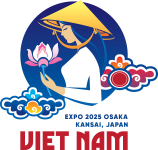The Strong Threads of Tradition: Rooted in History and Beliefs

Traditional Vietnamese culture is deeply rooted in its agricultural past and a complex interplay of philosophical and religious influences:

Ancestor Veneration and Family Values: At the heart of Vietnamese society lies a profound respect for ancestors. Altars dedicated to deceased family members are common in homes and businesses, serving as a focal point for remembrance and offerings. Family ties are incredibly strong, with emphasis placed on filial piety, respect for elders, and the importance of the extended family unit. This deeply ingrained respect for hierarchy and tradition shapes social interactions and decision-making processes.

The Influence of Confucianism: Centuries of Chinese rule left a significant mark, particularly the principles of Confucianism. These principles emphasize social harmony, order, respect for authority, and the importance of education and self-improvement. Confucian ideals continue to influence social etiquette, the structure of family and community, and the emphasis placed on academic achievement.

Buddhism and Folk Religions: While Confucianism provided a framework for social order, Buddhism has deeply permeated the spiritual landscape of Viet Nam. Pagodas and temples are prominent features of the landscape, and Buddhist teachings on compassion, karma, and reincarnation resonate with many. Alongside Buddhism, indigenous folk religions and animistic beliefs persist, often intertwined with ancestor worship. These beliefs involve reverence for spirits of nature, local deities, and the belief that the natural world is imbued with spiritual power.

Traditional Arts and Crafts: Viet Nam boasts a rich heritage of traditional arts and crafts passed down through generations. Water puppetry, a unique art form with roots in rural storytelling, continues to captivate audiences. Silk weaving, lacquerware, ceramics, and calligraphy are other prominent crafts, each with its own distinct techniques and cultural significance. These crafts are not merely decorative but often carry symbolic meanings and reflect the country’s history and natural environment.

Festivals and Celebrations: Traditional festivals play a crucial role in maintaining cultural identity and social cohesion. Tet Nguyen Dan (Lunar New Year) is the most important festival, a time for family reunions, honoring ancestors, and welcoming the new year with traditional customs and rituals. Other significant festivals include the Hue Festival, celebrating the imperial city’s heritage, and various local festivals tied to agricultural cycles and historical events.
The Strong Threads of Tradition provide a foundational framework for Vietnamese culture, shaping values, beliefs, and social interactions. Despite modernization, these roots remain deep and continue to influence contemporary life.


